Understanding the timeline of Alzheimer’s degeneration can improve support for those affected, and researchers have now built a new ‘molecular clock’ to predict the onset of symptoms years in advance, using established blood markers.
Category: Alzheimer Diagnosis News
Blood test ‘clocks’ predict when Alzheimer’s symptoms will start (Links to an external site)
Researchers at Washington University School of Medicine in St. Louis have developed a method to predict when someone is likely to develop symptoms of Alzheimer’s disease using a single blood test.
These driving habits could be a warning sign of Alzheimer’s, study finds (Links to an external site)
Driving data could be a new way to identify people who are at risk of cognitive decline, researchers find.
Most people say they want to know their risk for Alzheimer’s dementia, fewer follow through (Links to an external site)
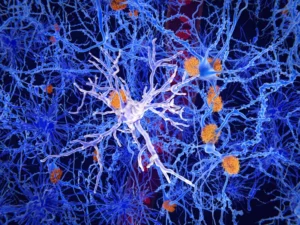
Among reasons for declining, research participants say knowing would be a burden to themselves, family members
Faster, cheaper, better: the rise of blood tests for Alzheimer’s (Links to an external site)
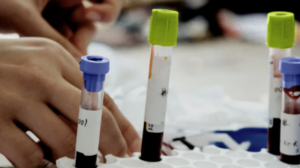
Circulating biomarkers are quickly becoming a crucial part of diagnosis and disease monitoring for physicians, researchers — and even some consumers.
Patient defies genetic fate to avoid Alzheimer’s (Links to an external site)
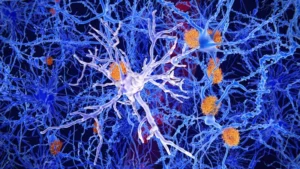
Doug Whitney, who lives near Seattle, Wash., inherited a mutation that has caused many family members to develop Alzheimer’s disease at about age 50, yet he shows no sign of the illness at age 75. His case is the subject of a new study by WashU Medicine researchers that aims to identify potential routes to preventing or treating Alzheimer’s based on Whitney’s exceptional resilience to the disease.
Memory Loss Isn’t the Only Sign of Dementia (Links to an external site)

Memory loss is the most well-known symptom of dementia, particularly Alzheimer’s disease. But experts say there are other warning signs that can signal early brain changes — ones that are especially important for types of dementia where forgetfulness is not the primary symptom.
Accuracy of diagnostic blood tests for Alzheimer’s disease varies (Links to an external site)

Head-to-head comparison of six tests reveals which ones could replace spinal taps, brain scans
Blood tests for Alzheimer’s may be coming to your doctor’s office. Here’s what to know (Links to an external site)

New blood tests could help doctors diagnose Alzheimer’s disease faster and more accurately, researchers reported Sunday – but some appear to work far better than others.
Racial disparities in dementia determined by social factors (Links to an external site)

Racial disparities in dementia are due to social determinants of health, with genetic ancestry playing no role, according to a new study led by researchers at Washington University School of Medicine in St. Louis.
‘A study to give us hope’: Lifestyle changes improve Alzheimer’s symptoms for some (Links to an external site)

Alzheimer’s disease progresses faster in people with Down syndrome (Links to an external site)

Nearly all adults with Down syndrome will develop evidence of Alzheimer’s disease by late middle age. A new study by researchers at Washington University School of Medicine in St. Louis shows that the disease both starts earlier and moves faster in people with Down syndrome, a finding that may have important implications for the treatment and care of this vulnerable group of patients.
Moment of promise (Links to an external site)

Washington University is known the world over for being a leader in neuroscience research. And the university underscored its commitment to the neurosciences by building an 11-story hub on the Medical Campus that enables researchers to work more collaboratively and creatively. The goal: to accelerate the translation of science into treatments to help those living with neurodegenerative diseases.
Alzheimer’s blood test performs as well as FDA-approved spinal fluid tests (Links to an external site)

Scientists report a major step toward a simple blood test for Alzheimer’s disease. Researchers at Washington University School of Medicine in St. Louis and Lund University in Sweden showed that a blood test is as good at identifying people in early stages of the disease as cerebrospinal fluid tests approved by the Food and Drug Administration (FDA) for Alzheimer’s diagnosis. The findings indicate that a blood test soon may replace more expensive and invasive brain scans and spinal taps for detecting signs of Alzheimer’s in the brain.
Proteins may predict who will get dementia 10 years later, study finds (Links to an external site)

A study of frozen blood samples has turned up a trove of proteins that may predict several forms of dementia more than 10 years before the disease is diagnosed, researchers from the U.K. and China reported on Monday.
Blood tests can help diagnose Alzheimer’s — if they’re accurate enough. Not all are (Links to an external site)

A new generation of blood tests is poised to change the way doctors determine whether patients with memory loss also have Alzheimer’s disease.
The tests detect substances in the blood that indicate the presence of sticky amyloid plaques in the brain — a hallmark of Alzheimer’s. So these tests have the potential to replace current diagnostic procedures, like costly PET scans and uncomfortable spinal taps.
Doubts abound about a new Alzheimer’s blood test (Links to an external site)

…Alzheimer’s researchers and clinicians aren’t convinced the Quest test is backed by sound scientific research. The possibility of false-positive results is high, as is the likelihood that older adults won’t understand the significance of their results, they say. The test should be taken only under a physician’s supervision, if at all, they advise. And, priced originally at $399 (recently discounted to $299) and not covered by insurance, it isn’t cheap.
When Gut Bacteria May Be an Early Sign of Alzheimer’s Disease (Links to an external site)
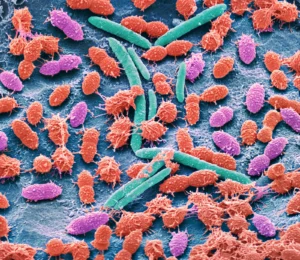
In a new study published in Science Translational Medicine, researchers from Washington University in St. Louis report on another possible factor: the types of bacteria living in the gut. Experiencing changes in gut bacteria populations may be an early marker for developing the disease, the scientists found. These differences can often begin years before the first symptoms of cognitive decline, such as memory loss and confusion, appear.
Progress in Early Detection and Treatment of Alzheimer’s Disease (Links to an external site)

Neurologists discuss the major milestones in identifying biomarkers for detecting early Alzheimer’s disease over the past two decades.
Researchers call for clinical trial globalization in Alzheimer’s (Links to an external site)

Globalization of ADRD clinical trials has become a pressing need as 68% of the people living with ADRD will reside in low-middle-income countries (LMICs) by 2025.
Equity for African Americans in Alzheimer’s disease (Links to an external site)

For 20 years, the Knight Alzheimer Disease Research Center has worked to boost diversity in clinical trials.
Alzheimer’s Disease: Blood Test May Detect Condition 3 Years Before Clinical Diagnosis (Links to an external site)

Scientists say they have developed a test that can potentially detect Alzheimer’s disease a few years before people typically get a clinical diagnosis.
How Alzheimer’s Disease Research Is Helping Scientists Find Ways To Better Diagnose, Prevent, Treat, and Ultimately Cure Alzheimer’s (Links to an external site)

A new diagnostic tool by C2N Diagnostics is an important new tool for physicians in the evaluation of Alzheimer disease. It could pave the way for earlier diagnosis and treatment and greater enrollment in clinical trials.
What causes Alzheimer’s? Study puts leading theory to ‘ultimate test’ (Links to an external site)

Scientists are launching a study designed to make or break the hypothesis that Alzheimer’s is caused by a sticky substance called beta-amyloid. The study will give an experimental anti-amyloid drug to people as young as 18 who have gene mutations that often cause Alzheimer’s to appear in their 30s or 40s.
$9 million to fund study of ‘jumping genes’ in Alzheimer’s (Links to an external site)
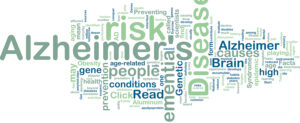
A five-year, $9 million grant from the National Institute on Aging of the National Institutes of Health (NIH) will fund research led by several investigators at Washington University School of Medicine in St. Louis and at the University of Texas at San Antonio to answer that question.
Better Cognitive Predictor in People at High Risk of Alzheimer’s Disease (Links to an external site)
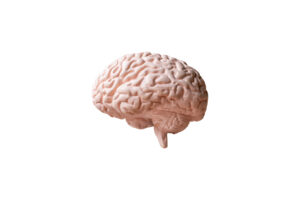
The Alzheimer’s disease (AD) drug lecanemab’s recent success in Biogen’s Phase III clinical trials might have more to do with its effect in increasing levels of soluble amyloid-beta than in decreasing amyloid plaques in the brain, the findings of a new study published in the Journal of Alzheimer’s Disease on October 4, 2022, suggests.
Cruchaga awarded Zenith Fellowship Award (Links to an external site)

Carlos Cruchaga, PhD, the Barbara Burton and Reuben M. Morriss III Professor in psychiatry, is one of three Zenith Fellows selected this year and one of only 146 Alzheimer’s researchers chosen for the honor since it was created in 1991.
Washington University researcher finds Hispanic community more likely to develop Alzheimer’s (Links to an external site)

Dr. Jorge Llibre is a Washington University neurologist that researches Alzheimer’s. He says research shows the Hispanic community is two times more likely to develop Alzheimer’s or dementia than non-Hispanics.
Risk of Alzheimer’s dementia may be predicted with help of new tool (Links to an external site)

Using demographic information, brain imaging test results and genetic biomarkers, researchers at Washington University School of Medicine in St. Louis have developed an algorithm that can help provide people who volunteer for studies of aging with information about the risk each faces of developing dementia due to Alzheimer’s disease.
With early Alzheimer’s in the family, these sisters decided to test for the gene (Links to an external site)

New Alzheimer’s diagnoses more common among seniors who have had Covid-19, study finds (Links to an external site)
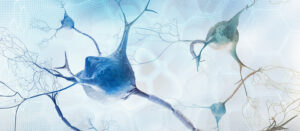
A recent study of more than 6 million people 65 and older found that seniors who had Covid-19 had a substantially higher risk of being diagnosed with Alzheimer’s disease within a year.
Preclinical Alzheimer’s disease biomarkers accurately predict cognitive and neuropathological outcomes (Links to an external site)

The detection of preclinical Alzheimer disease biomarkers is strongly predictive of future cognitive impairment and accurately predicts presence of Alzheimer disease neuropathology at autopsy.
Dr. John C. Morris discusses biomarkers. (Links to an external site)
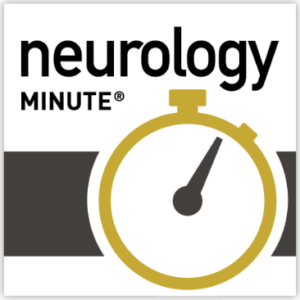
Dr. John C. Morris, MD, FAAN shares what he learned as the guest editor of the June 2022 Continuum issue on Dementia which includes biomarkers.
How deep sleep keeps our brains intact (Links to an external site)

How St. Louis researchers are seeking ways to combat Alzheimer’s and dementia (Links to an external site)

Race of people given Alzheimer’s blood tests may affect interpretation of results (Links to an external site)

Three experimental blood tests used to identify people in early stages of Alzheimer’s disease perform differently in Black individuals compared to white individuals, according to a new study from Washington University School of Medicine in St. Louis.
Risky driving behaviors increase as common sleep disorder worsens (Links to an external site)

Diagnosing, treating sleep apnea may make driving safer for older adults
New blood test may accurately detect Alzheimer’s disease (Links to an external site)

Now, a blood test developed by researchers at Washington University School of Medicine, St. Louis, has shown promising results in detecting the early signs of AD.
ANA Investigates: A Podcast Series (Links to an external site)

On today’s show, we’ll focus on the future of biomarkers in Alzheimer’s disease. We know that amyloid beta and tau protein deposit long before patients with Alzheimer’s develop symptoms. If we could use biomarkers to detect this pathology early, and treat patients early, could we prevent the progression to dementia?
Could drugs prevent Alzheimer’s? These trials aim to find out (Links to an external site)

Could drugs prevent Alzheimer’s? These trials aim to find out
Damage early in Alzheimer’s disease ID’d via novel MRI approach (Links to an external site)

A research team at Washington University School of Medicine in St. Louis has identified potential new treatment targets for Alzheimer’s disease, as well as existing drugs that have therapeutic potential against these targets.
Blood test for Alzheimer’s highly accurate in large, international study (Links to an external site)

A research team at Washington University School of Medicine in St. Louis has identified potential new treatment targets for Alzheimer’s disease, as well as existing drugs that have therapeutic potential against these targets.
Blood test can predict presence of beta-amyloid in the brain, new study finds (Links to an external site)

A research team at Washington University School of Medicine in St. Louis has identified potential new treatment targets for Alzheimer’s disease, as well as existing drugs that have therapeutic potential against these targets.
How a hyperactive cell in the brain might trigger Alzheimer’s disease (Links to an external site)

A research team at Washington University School of Medicine in St. Louis has identified potential new treatment targets for Alzheimer’s disease, as well as existing drugs that have therapeutic potential against these targets.
Racial equity in Alzheimer’s research focus of $7 million in grants (Links to an external site)

A research team at Washington University School of Medicine in St. Louis has identified potential new treatment targets for Alzheimer’s disease, as well as existing drugs that have therapeutic potential against these targets.
Blood tests could help screen anticipated flood of patients seeking new Alzheimer’s drug (Links to an external site)

When the U.S. government approved the Alzheimer’s disease drug aducanumab last month despite shaky evidence of clinical benefits, Suzanne Schindler saw an immediate consequence: “We’re going to have to do a lot more biomarker testing.” Schindler, a neurologist at the Washington University School of Medicine in St. Louis, expects many patients with memory problems will […]